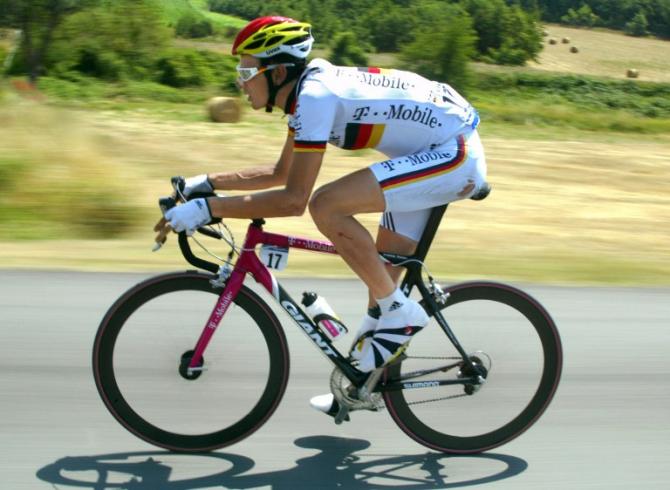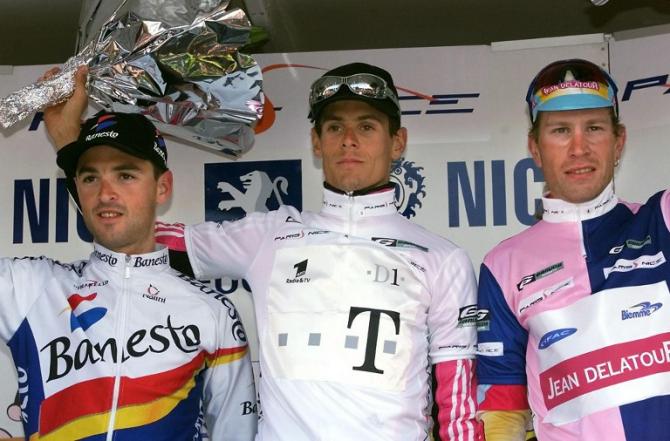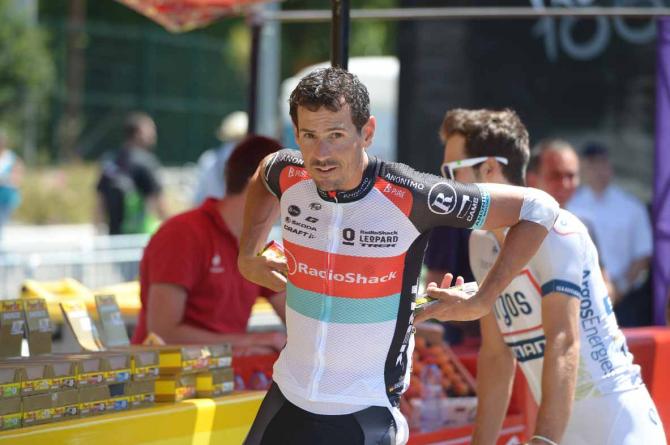Klöden: I understand why the doubts remain
German looks back on career with satisfaction



The recently-retired Andreas Klöden has said that he can look back on his sixteen years as a professional with satisfaction. In a lengthy interview with Radsport-news.com, the German again denied that he had blood doped at the Freiburg clinic during the 2006 Tour de France, but acknowledged that he could understand why doubts lingered over the case.
Klöden turned pro with Team Telekom in 1998. "The time at Telekom was probably when I felt best. Speaking your own native language helps. Riders from that time like Danilo Hondo, Jan Ullrich and André Korff were guys I got along well with, but it's hard to have real friends in pro cycling." After nine years with Telekom and T-Mobile, Klöden moved on to Astana for three years and Radioshack for four years.
In 2008 Patrick Sinkewitz pointed his finger at Andreas Klöden, claiming that they had visited a clinic in Freiburg with Matthias Kessler for a blood doping procedure just before the 2006 Tour de France. "I can only repeat that I have nothing to do with this case. Why can't these things be treated like with normal people? When something was wrong, they could have suspended me. But they didn't because there was no proof and nothing was happening there."
Klöden never tested positive for doping but he later reached an agreement with German prosecutors and paid an unspecified amount to a children's charity to bring an end the investigation. "I did pay to make sure that this case wouldn't obstruct my career any longer. It was a tough mental burden. I understand why the doubts remain when you know the history of the sport but I can't change that so won't bother with it."
In July the French senate released a list of positive doping tests for EPO from the 1998 Tour de France. For Klöden, doing retrospective tests means a good warning for current riders but he also would like to see the testing changed.
"Doing tests years after is a good method to warn riders but the controls have to change. When the A-sample is tested, the B-sample remains in store. Nobody knows what happens with it all these years. Then they do all the work to re-test it and the athlete flags a positive result. That's it. The athlete has no chance to prove his innocence anymore. Furthermore they should do this retrospective testing in all sports, also the ones with lots of money and power. It shouldn't be about pushing one sport further into the abyss."
German television has withdrawn from coverage of cycling events since the 2007 Tour de France, and the sport's stock in the country is perhaps illustrated by the fact that world time trial champion Tony Martin placed only tenth in voting for Germany's athlete of the year. Cycling still doesn't receive wide coverage in Germany at the moment and is usually linked to doping cases in the public eye.
The latest race content, interviews, features, reviews and expert buying guides, direct to your inbox!
"We can keep talking about this era for a long time. It was not a nice time. But I'd like that we could just leave the subject so we can give the attention to younger riders like Tony Martin and Marcel Kittel. And that they can enjoy their fantastic efforts. If Tony Martin becomes world champion, people have doubts. When someone else in another sports becomes world champion everybody cheers and nobody doubts. If you think cheating only happens in cycling, you are a dreamer and not objective," Klöden said.
After 16 seasons on the road, Klöden decided to quit. "I have been thinking about quitting in the past two years. Especially finding the motivation to go out for training time and time again was hard. The results that I imagined didn't happen and I didn't want to take the risks of bike races anymore. Furthermore the atmosphere within the team [Radioshack-Leopard] was not as good as it used to be after all that had happened."
"I am content with my career. I love the sport and can see myself coming back with a team to teach young riders tactically and about training methods. But for the first time, I will spend the summer holidays together with my family. That hasn't been possible throughout my entire career."